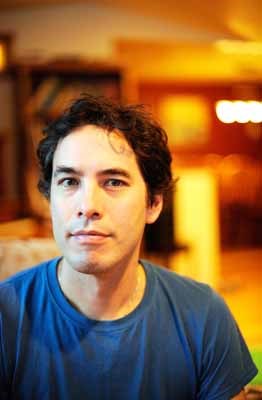Mitch Miyagawa believes he has the most apologized-to family in Canada, maybe even the world.
In 1988, the federal government apologized to his Japanese-Canadian father who was interned during the Second World War.
In 2006, the federal government apologized to his stepfather for the Chinese head tax and to his aboriginal stepmother in 2008 for residential schools.
In his first feature-length documentary, A Sorry State, Miyagawa explores what these apologies mean to his parents, his young children and to Canada. It screens as part of the 37th annual Powell Street Festival, Aug. 3 and 4.
I thought this is crazy and kind of ludicrous and sad and interesting all at the same time, Miyagawa said. I really just wanted to know more about what do these mean, mostly for myself There was something about our story that really meant something about our whole country and the work that Canadas tried to do to deal with the past and thats quite a universal theme.
Miyagawa originally envisioned starting the story with his family and then broadening his scope to different groups across the country and the world that have received or were still seeking apologies for governments past racist actions.
Its really countries trying to deal with the aftermath of colonialism, Miyagawa said on the phone from his home on Thetis Island.
But his family and their stories became the heart of the film, the focus for its first half. Miyagawa visits the home his fathers family was kicked out of in Mission and where they were interned in southern Alberta, and he visits a residential school with his stepmother.
He visits the first Truth and Reconciliation Commission in Winnipeg in the second half and interviews Roy Miki, a Japanese-Canadian poet and former Simon Fraser University professor who participated in the movement for Japanese-Canadian redress.
Miyagawa says what Miki says Japanese-Canadians wanted 25 years ago, acknowledgement that the democratic system broke, not just compensation for victims, is prescient in terms of the Truth and Reconciliation Commission.
I can just see how its still turning into this idea of victims in need of some kind of compensation rather than hey, this is something that we were all involved in, Miyagawa said. This is something where we really need to open our hearts as non-aboriginal people to be involved in and not just see it as something that happened to them.
Miyagawa, who wrote a cover story by the same name for The Walrus magazine in 2009, says making the documentary changed his life.
He learned much more about his stepparents lives.
And despite how we really want the past to just have no meaning and for everybody just to get along and move on it just doesnt work that way, he said. These stories, especially those ones as traumatic as the residential school experience live on through the generations.
His new understandings have compelled him to focus more on helping improve human rights.
The screening is Miyagawas second contribution to the Powell Street Festival. The Plum Tree, a play he wrote about the Japanese-Canadian redress movement, was included in the festival a decade ago.
A Sorry State, for which Miyagawa won a Writers Guild of Canada Screenwriting Award, screens Aug. 3 at the Firehall Art Centre at 4:45 p.m. It will be followed by a discussion with Chief Robert Joseph from Reconciliation Canada about progressing beyond apologies, 25 years after Japanese-Canadian redress and five years after the apology to residential school survivors.
The Powell Street Festival is the largest Japanese-Canadian festival in the country and the longest-running community celebration in Vancouver. This years event includes traditional and contemporary Japanese-Canadian performances and demonstrations, including taiko drumming, sumo wrestling, martial arts, bonsai, dance, alternative pop/rock/urban music and visual arts as well as historical walking tours, tea ceremonies, Japanese food, crafts and displays.
twitter.com/Cheryl_Rossi
The Powell Street Festival
Aug. 3 and 4 at Oppenheimer Park, 400 Powell St.
powellstreetfestival.com


